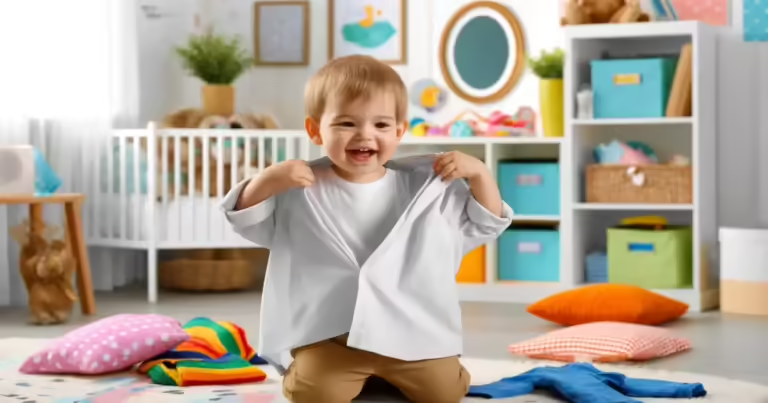Positive Parenting Tips: 10 Ways to Encourage Better Behavior in Children

As parents, we strive to provide a nurturing, protective, and guiding environment for our children. However, raising children is not always an easy task, especially when they display undesirable or unexplainable behavior.
Fortunately, positive parenting techniques can help promote more acceptable behavior in children and enable them to become healthier and better-adjusted individuals.
In this article, we share 10 positive parenting tips based on over 10 years of experience in working with families as a Conscious Parenting Coach on how to create and implement a supportive and effective positive parenting strategy.

10 Positive Parenting Tips For Healthy Child Development!
1. Physical Affection
Physical Affection is Key Give your child plenty of nurturing physical attention. Hugs, cuddles, and holding hands are simple gestures that help to show your child the affection they desire. If your child isn’t overly affectionate, understand and recognize the ways they like to be nurtured and comforted.
2. Promote a Variety of Activities
As a parent, you know that keeping children entertained and engaged is essential for their well-being. The last thing you want is for boredom to set in, leading to restlessness and bad behavior. That’s why it’s crucial to provide a range of activities that capture their imagination and keep them occupied both indoors and out.
By offering a variety of options, you can give your child the chance to explore new interests and develop essential skills. Reading is a fantastic way to broaden their horizons and foster a lifelong love of learning. Games and puzzles challenge their minds and encourage problem-solving abilities, while science projects enable them to discover the wonders of the world around them.
For a change of scenery, take your child on a nature walk and encourage them to observe the environment and all its intricacies. Or, set up a cozy blanket tent in the backyard for some imaginative playtime. By providing a diverse range of activities, you can help your child grow and thrive in a safe and engaging environment.
Remember, a child who is consistently stimulated and entertained is more likely to be happy, healthy, and well-behaved. So, take the time to plan and implement a variety of activities that keep your child engaged and entertained, both indoors and out. Your efforts will pay off in the form of a happy, well-adjusted child.
3. Set Boundaries
As parents, it’s crucial to establish clear limits on behavior in your household. By setting clear rules and boundaries, you not only help your child understand what is expected of them, but you also create a safer and more structured environment.
So, gather your family for a discussion about the family rules and make sure your child knows exactly what the consequences will be if they break them.
To create effective rules, keep in mind the five key elements: they should be few, fair, easy to follow, enforceable, and positively stated. For instance, Instead of telling your child to “STOP RUNNING in the store,” try a more positive approach and say “Let’s walk together in the store.” This way, you’re emphasizing what they should do instead of just what to avoid.
It’s also important to keep in mind that rules and consequences should be age-appropriate and tailored to your child’s individual needs. With clear guidelines in place, your child will be better equipped to navigate the world around them and learn valuable lessons about responsibility and respect. So, set those limits and watch your child thrive in a more structured and positive environment.
4. Avoid Negative Reactions To Outburst
We all know how difficult it can be to manage our children’s emotions, especially when they’re having an emotional outburst. But in these moments, it’s crucial to stay calm and composed. Instead of reacting emotionally, try giving clear instructions to your child on how to stop their misbehavior and what they can do instead.
And when they do make the right choice, be sure to give them specific praise for their efforts. A simple “Thank you for playing with the truck on the ground” can go a long way in reinforcing positive behavior and building a stronger bond between you and your child.
So the next time your child has an emotional outburst, take a deep breath, stay cool, and lead them with clear and positive instructions.
5. Keep Your Expectations Real
Keep Realistic Expectations It’s essential to keep realistic expectations of your child’s behavior. Children misbehave at times, and you are bound to face discipline challenges.
Trying to be a perfect parent and expecting a perfectly well-behaved kid can set you up for frustration and disappointment. Clear expectations within the parent-child relationship are key to a positive parenting approach.
6. Parental Self Care
As a parent, it’s natural to put your family’s needs before your own. Still, it’s important to remember that neglecting your self-care can have adverse effects on your mental and physical health. By taking some time to relax and recharge, you can reduce stress levels and increase your energy, which can lead to increased productivity and overall happiness.
Remember, self-care is not selfish; it is a necessity. Make it a priority to take care of yourself by incorporating self-care activities into your daily or weekly routine. You’re not only raising your self-esteem but you’re raising your child’s as well, but you’ll also be setting a great example within the dynamics of the parent-child relationship.
So, go ahead, take care of yourself, and watch as your quality of life improves.
7. Create Positive Attention
Give Positive Attention to Your Child Your child needs positive attention from you. If they do not receive positive attention, they may seek out negative attention. Communicate with your child, show them love and care, and remember that positive attention is a significant healer.
8. Be a Guide for Your Child Through Mistakes
Empower Your Child with Positive Reinforcement Punishment isn’t always the answer. Instead, guide your child through mistakes by using logical consequences to encourage good behavior and empower them to reach their full potential.
9. Don’t React, Respond to Negative Behavior
As a parent, you want to support your child in developing strong self-control and Emotional Intelligence but it can be challenging when they struggle in this area.
It’s important to keep in mind that negative reactions like anger, sarcasm, or ridicule are not helpful and can make the situation worse. Instead, consider using short and gentle verbal cues to encourage your child to refocus positively.
A great example is the “L.P.A.” method, which stands for “let’s pay attention.” By using positive language and avoiding negativity, you can help your child feel supported and motivated to improve their self-control skills. Remember, as a parent, you play an essential role in guiding and nurturing your child, so choose your words carefully and set them up for success.
10. Model Positive Behavior Yourself
As a parent, you are the ultimate role model for your children. They watch your every move, taking cues from your behavior and actions. This is why it is crucial to model positive behavior and set a good example.
When you make wise and thoughtful choices in your behavior, you are permitting your kids to do the same. Conversely, if you lose your temper or make poor choices in front of them, you are inadvertently sending them the message that this is acceptable behavior.
So, take the time to check in with yourself and reflect on your actions. Avoid losing your temper in front of the children, and instead, demonstrate patience and kindness.
By doing so, you are not only showing your kids how to behave positively and constructively, but you are also fostering a healthy and supportive family dynamic. Remember, the way you act sets the tone for your children’s behavior, so lead by example and show them the way.

Final Word…
Incorporating positive parenting solutions into our parenting practices can help promote better behavior in our children and make them happier and healthier individuals. These tips may take some time to
adjust, but with patience and consistency, you will see positive results. Remember that every child is unique, and what works for one child may not work for another. It’s important to tailor your parenting style to your child’s individual needs.
As a Conscious Parenting Coach, I have seen firsthand the transformative power of positive parenting techniques. By practicing positive reinforcement, keeping open and honest communication with your child, and setting clear boundaries, you can help your child develop into a confident, healthy, and well-adjusted individual.
It’s important to approach parenting with a growth mindset and recognize that parenting is a journey that involves continuous learning and growth.
As you incorporate positive parenting techniques into your parenting practices, you will also learn and grow as a parent. With time, patience, and consistency, you will see positive changes in your child’s behavior and create a happy and healthy family environment.
In conclusion, positive parenting is an effective way to encourage better behavior in children and promote their mental and emotional child development. By adopting the tips discussed in this article and tailoring them to your child’s individual needs, you can help your child thrive and become the best version of themselves.
Remember that being a parent is a journey, and it’s important to approach it with a positive mindset and a willingness to learn and grow.






